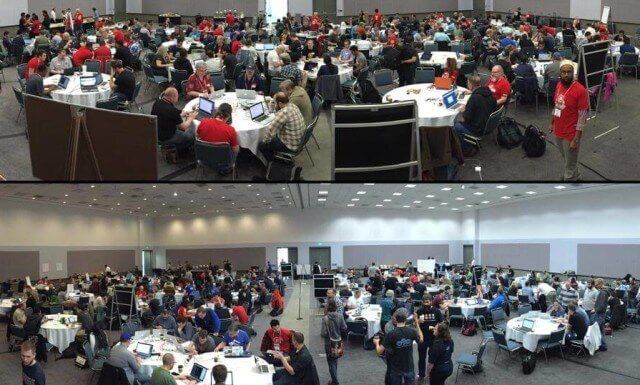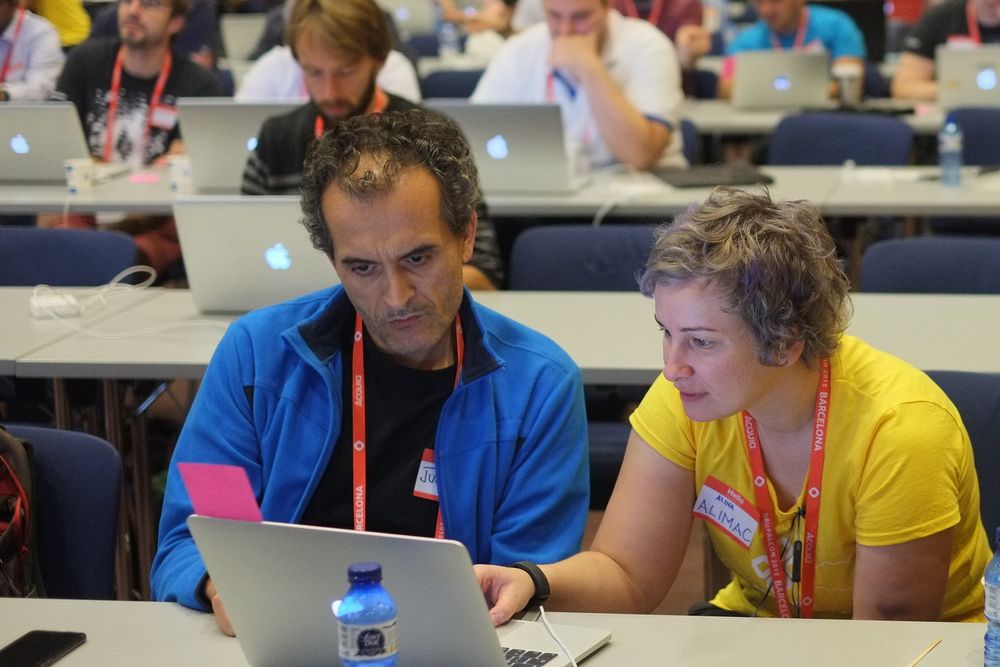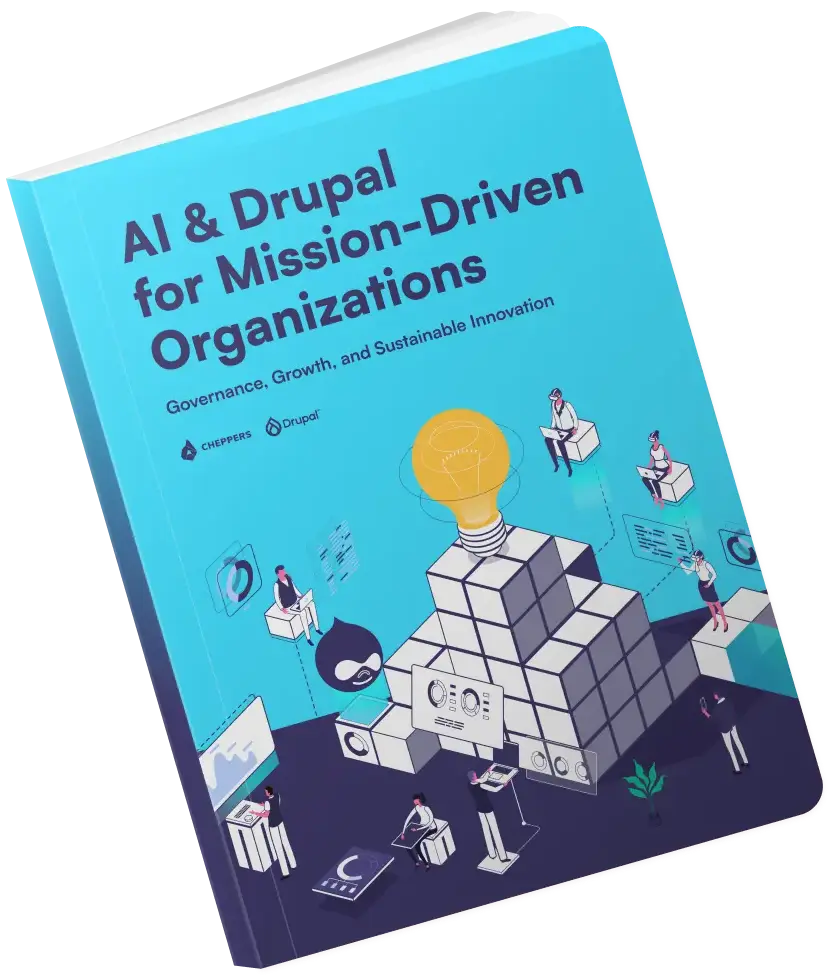Sprint guide to the Drupal Global Sprint Galaxy
After two successful years hosting the Hungarian location for Drupal Global Sprint Weekend in 2014 and 2015, this year’s event will once again be held at the Cheppers office.

Drupal Global Sprint Weekend 2016 will take place on 30-31 January 2016 all over the world. The Hungarian event will be on Saturday, 30 January, from 10AM. The guide below will give you information about what Drupal sprints are, what the global event is about, what you can expect from the Hungarian sprint, and how you should prepare for it.
All about the sprint
By definition, a ‘sprint’ is an event for contributors to come together in one room and work on Drupal, usually on the same project.
During larger Drupal events, such as camps and conferences, developers come together from many corners of the world to attend sessions, networking meetings, and, last but not least, to sprint together. Sadly, there is no long, continuous conference throughout the whole year, so the moments when Drupalists can get together is limited but highly appreciated and very efficient, as everyone’s knowledge adds up during the sprints, and they can work on the issue queue a lot more productively.

Drupal sprints are usually coordinated on a certain level. There are mentors and sprint leaders (read about them later below), who help you find your task(s) and sometimes help in completing it, but the way of solving a problem isn’t written in stone. The goal is to work together on Drupal, but you can choose your own tasks. If you have a contrib module you are interested in, or if you want to join an initiative you like, this is the right occasion to find your partners in crime and start or continue the actual work. Plus, you don’t have to be a programmer to join a sprint, as you can work on any Drupal related topic you like.
What is Drupal Global Sprint Weekend?
A sprint can be organized basically anywhere, anytime. It can be a random event or a well-prepared one.
The Drupal Global Sprint Weekend is intended to provide an ‘official’ (well announced and advertised) time period for everyone interested in Drupal to work on issues together, outside of a larger conference.
The Drupal Global Sprint Weekend (or DGSW) is a full weekend dedicated to Drupalistas to work together during the same time period. It can be one day or two days long. At DGSWs it’s usually the local communities who work together, parallel to other Drupal communities in the world, which gives the charm of the event.
Here’s this year’s list of DGSW events: https://groups.drupal.org/node/488988
The idea for DGSW came about in 2013, when Cathy 'YesCT' Theys (recipient of the first Aaron Winborn award, and also an ex-member of Cheppers) wanted to organize a local sprint and also wanted to create buzz around it. She set the date and asked many meetup organizers who had scheduled their meetups for the same day to have a sprint at their event and thus make it more global. It went pretty well, there were 33 sprints on the same day. If you want to hear more about it, check out this video interview with her.
You can read more of the previous years’ DGSW here:
2015: https://groups.drupal.org/node/447258
2014: https://groups.drupal.org/node/332998
2013: https://groups.drupal.org/node/277768
How does a sprint work?
Every sprint has three main ingredients that make the event work: community, contribution and collaboration.
People
Drupal is built upon the work of the community, as the members of the community develop it. It is especially during sprints that you can count on the help of the community, when you can meet more of your fellow Drupalists and create a great work party.
Co-working
With every team, work collaboration is a very important part of getting things done. During a sprint you can overcome the problems in the issue queue a lot more easily, not just by asking for advice from each other, but also by working together on the solutions. When you get to work in smaller groups and discuss the issues, you can get closer to the solution and make good progress quickly.
Giving back
The most exciting part of a sprint is to contributing to the community, and enjoying the karma and happiness this feeling adds to your work. It doesn’t matter which area you work on, you contribute to make Drupal better.
(Note: Thanks for the 3 'C's to Lilian Ma at Genuine.)
Who can join a sprint?
Anyone. Literally anyone can join the sprint who is interested in fixing Drupal issues. As the issue queue is usually very long, anyone can find an issue that suits their level of knowledge (or available time).
You don’t need to be a developer to sprint either. There are a lot of areas outside of coding where your help can be useful. You can work on documentation, usability, translations or event organization. For example, an important segment of the Hungarian sprint will be the translation sprint, where we will work on the user manual and translations of modules to Hungarian.
If you want to organize a sprint in your city, here’s a great guide: https://www.drupal.org/core-mentoring/sprint-resources
What do you work on during a sprint and what is the issue queue?
To make collaboration easier on any project, it’s important to be able to review all of the unresolved issues. This is why the Drupal issue queue is so important, because you can choose an issue to fix from this list. You can filter the tasks based on several aspects to choose the right one for you, for example you can sort by Drupal versions, projects, components, priorities, statuses and categories.
When you find an issue you would like to resolve, just assign it to yourself and start working on it! Assigning is very important during Drupal Global Sprint Weekends, as there are thousands of Drupal people working at the same time, and this way you can make sure you don’t start working on anything that was already started by someone else.
Read more information about the issue queue here: https://www.drupal.org/issue-queue
Read more about the statuses of the issues: https://www.drupal.org/issue-queue/status
This is a useful read about how to start working on the issue queue: https://www.drupal.org/node/945492
Mentoring
Mentors and sprint leaders are a very important part of the sprints, and fortunately the Drupal community has always had great people in these roles.
Mentoring is an important job in such large collaboration, and it means that Drupalists a bit more experienced than you can help you start or continue your work. They can help with everything, from how to set up your local environment to helping with the solution.

Sprint leaders also help you in farming the issue queue. Usually they are leaders or members of an initiative or a module development, and if you are interested in that particular topic, you can join their team to work together on their specific issues. They can also help with anything you need to know, so they are mentors as well.
There is always at least one mentor or sprint leader at every sprint who you can turn to if you need to know something. If you come to our sprint in Budapest, Gábor Hojtsy will mentor code contributors while Balu Ertl will help your work with translations.
Get ready to sprint!
To join the sprint, you need to have a Drupal.org account, as you cannot assign an issue to yourself without a user account. Register as a user here: https://register.drupal.org/user/register
Bring your own laptop, as you will work with it. Don’t forget the charger :)
You should have Drupal 8 core installed too, but we can give you a hand with that if you need it. You’ll need git if you are about to contribute to Drupal’s code.
Useful, but not necessary: Have IRC installed on your computer. IRC is the quickest communication channel, and during dedicated sprints you find a lot of contributors online who can help you with specific issues. Drupal IRC setup info can be found here: https://www.drupal.org/irc
Good to read before you start sprinting: https://www.drupal.org/coding-standards
This article may be useful for novices: https://www.drupal.org/novice
Have fun!
Your most important task during a sprint is to enjoy it! There is no wrong way of contributing, no matter if you ask for help, give directions to someone else, or work together. All of these move Drupal forward, and will also improve your skills.
What will we do in Budapest?
The Drupal Global Sprint Weekend 2016 (or rather sprint day, as we will do it on Saturday only) is organized by the Hungarian Drupal Association, and we, Cheppers are hosting the event in our office. You can join us from 10AM. We’ll work on the issues until we get tired, and then we will probably go out and celebrate the success of the day somewhere in the city.
The Hungarian community’s code sprint will be led by Gábor Hojtsy, who has been a helping hand for us since the beginning. This means you’ll definitely get to work on the multilingual initiative, but you can also pick other issues to make Drupal better.
The Hungarian translation team’s mentor is Balu Ertl. Although Drupal 8 core is 100% translated to Hungarian, there is work to do with the documentation and contributed modules. The goal of the translation sprint is to work on the user manual first, and on module translations too, if we have some time left.
If you wanna join us, make sure you sign up here: https://groups.drupal.org/node/506948
We hope to see you there!

